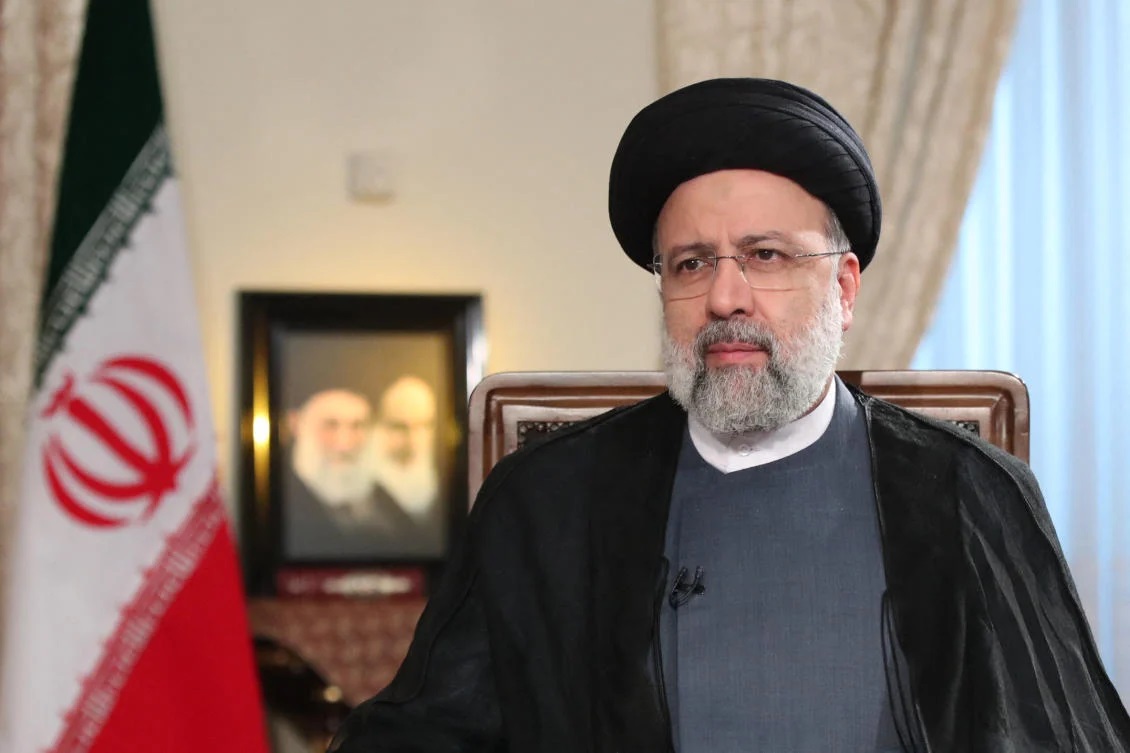
Iran’s President Ebrahim Raeisi says the world must hold the United States to account for supporting terrorism fomented by the Daesh Takfiri group and other new forms of this ominous phenomenon.
Raeisi made the remarks in a Sunday phone call with his French counterpart, Emmanuel Macron, during which he welcomed expansion of Tehran-Paris relations in all areas, particularly economy and trade.
Elaborating on the efforts made by countries in the region and elsewhere in the world to fight terrorism, especially by Daesh, Iran’s chief executive said Daesh has been created and is still being supported by the United States.
“Americans must be held to account before the world’s public opinion for supporting Daesh and new terrorism,” Raeisi said.
Denouncing certain countries for dividing terrorism into good and bad categories, Iran’s president said, “The Islamic Republic of Iran condemns terrorism in all its forms and from our standpoint, there is no difference between Daesh in Damascus, Daesh in Iraq and the Daesh-Khorasan branch.”
Raeisi then turned to the current situation in Afghanistan following withdrawal of foreign forces, saying that the US made a “big mistake” in Afghanistan and 20 years of the country’s occupation brought nothing to the Afghan people.
"Under the current circumstances, all should help establish an inclusive government in Afghanistan representing all groups, and we must allow the people of Afghanistan to decide their own destiny,” Raeisi stated.
He said the military intervention by the US and NATO in Afghanistan was a failed policy, stressing the importance of preparing the necessary grounds for Afghan groups to achieve a model of government acceptable to all Afghans.
“The Islamic Republic of Iran is ready to help establish peace, tranquility and security while preventing fratricide in Afghanistan,” the president stated.
The Taliban are poised to run Afghanistan again 20 years after they were removed from power by American invading forces. The Taliban intensified offensives and rapidly overran major cities in recent weeks as the United States started withdrawal of its forces from Afghanistan. The Taliban took control of Afghanistan on August 15, forcing the US-allied Afghan President Ashraf Ghani to flee the country.
The takeover also prompted evacuation of thousands of Afghan and foreign civilians via the Kabul airport, while foreign troops also used the airfield to pull out.
The Taliban’s deputy leader Mullah Abdul Ghani Baradar said on Saturday that the group is in the process of forming an inclusive government.
Addressing a Sunday virtual meeting with special envoys from neighboring countries of Afghanistan, Iran’s special envoy for Afghanistan, Mohammad Ebrahim Taherian, said the establishment of peace and stability in Afghanistan is only possible through the formation of a broad-based government in the war-ravaged country.
Elsewhere in his remarks, Raeisi also reaffirmed Iran’s support for the formation of a strong government in Lebanon, which would be able to ensure and protect the rights of the Lebanese people.
He added, "Iran will spare no humanitarian aid to the Lebanese people and we are ready to cooperate with France for the progress and development of Lebanon.”
The Iranian president said the Lebanese people are suffering from economic sanctions while France can play a role in lifting these restrictions. “Efforts made and assistance provided by Iran, France and Hezbollah to form a strong government in Lebanon would benefit this country.”
Lebanon has been mired since late 2019 in a deep economic and financial crisis, exacerbated by a political deadlock.
The economic and financial crisis is the gravest threat to the country’s stability since the 15-year civil war ended in 1990.
The crisis is mostly linked to the sanctions that the United States and its allies have imposed on Lebanon as well as foreign intervention in the Arab nation’s domestic affairs.
Lebanese President Michel Aoun said last month that some political parties are seeking to delay the formation of a desperately-needed new government and push the Arab country toward chaos.
Elsewhere in his remarks, President Raeisi pointed to the Vienna talks aimed at reviving the 2015 Iran nuclear agreement, officially known as the Joint Comprehensive Plan of Action (JCPOA), and said, “We are not opposed to useful negotiations, but the goal and result of negotiations should be removal of sanctions imposed on Iran. Negotiations for the sake of negotiations are futile.”
During his first televised address to the Iranian people on Saturday, Raeisi dismissed the idea of holding negotiations over the JCPOA revival under pressure, saying such tactics has never yielded the US and Europe any result.
“Negotiation and dialog have always been and will continue to be part of the instruments that are in the service of diplomacy. We do not balk at negotiation and dialog,” he said.
“But the Americans and the Westerners are after negotiation in conjunction with pressure. This is while negotiations are there to avoid pressure.”
The French president, for his part, reflected on the ongoing developments in Afghanistan, saying that in his opinion, any future government in Afghanistan must arise from the national will of the people while the Taliban should respect human rights and the country’s international commitments.
Referring to the situation in Lebanon, Macron emphasized further cooperation among Iran and France, along with the Hezbollah resistance movement, to establish a powerful and efficient government in the country.
Macron also expressed hope that the Vienna talks would start soon with Iran’s participation.
